Sweden’s Per Capita Deaths in Line with the European Average in 2020
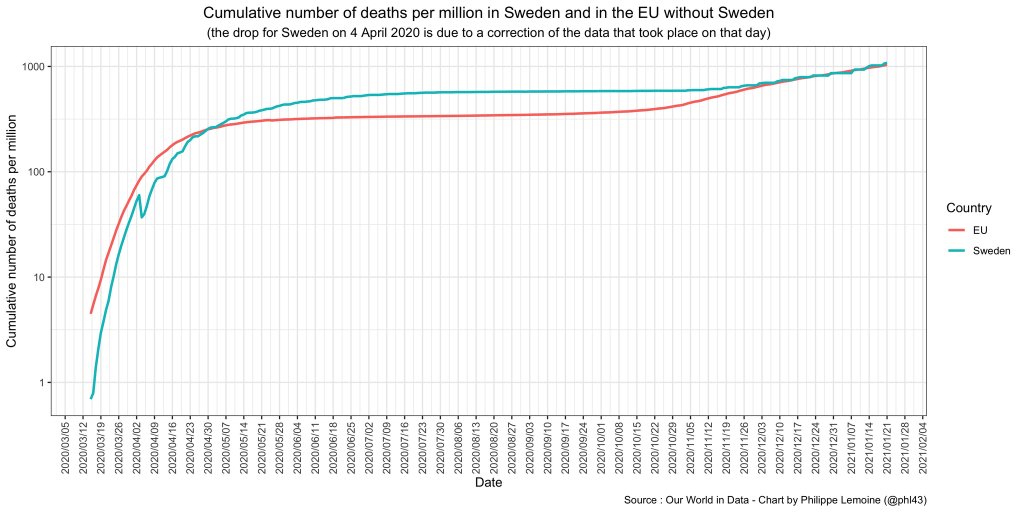
Will Jones has taken another look at the situation in Sweden. He finds that the country does indeed show that lockdowns aren’t needed.
Severe restrictions on civic and economic life are the only thing standing between us and the virus spiralling out of control and killing many times more people than at present. That is the foundational belief of lockdownism. Unfortunately, it is defeated by the example of any country or state that does not impose such restrictions and does not experience such an outcome. A number of states in America fit this description this winter, such as Florida, Texas, North Dakota and South Dakota.
Sweden is the main example in Europe. It is also a good comparison for the UK as it is similarly urbanised (actually slightly more, 87.7% vs 83.4%) and the capital Stockholm has a similar population density to London.
In the spring Sweden imposed only light restrictions, including a limit of 50 on public gatherings, but did not at any point close businesses or most schools or require people to stay at home. This light-touch approach has largely continued, although the country has come under huge pressure to impose more restrictive measures.
In the midst of a winter surge, Sweden finally passed a law that came into effect on January 10th adding some new restrictions on gathering sizes and venue capacity and enabling the Government to close businesses, though it has not yet done so. Reuters reported:
Sweden tightened social distancing rules for shopping centres, gyms and private gatherings on Friday and said it was ready to close businesses if needed, but stopped short of a lockdown to fight the spread of the pandemic.
Earlier in the day, parliament voted the Government wider powers to close businesses and limit the size of public and private gatherings as an addition to what have so-far been mostly voluntary measures to ensure social distancing.
“Today, the Government has not decided on the closure of businesses, but the Government is ready to make that kind of decision as well,” Prime Minister Stefan Lofven told a news conference. “This is not something that we take lightly, but people’s lives and health are at stake.”
From Sunday [January 10th], gyms, sports centres, shopping malls and public pools will have to set a maximum number of visitors based on their size.
In addition, private gatherings will also be limited to eight people, a rule which until now has only affected public events.
A Lockdown Sceptics reader whose family lives in Sweden sent us an update on the current rules.
- We can visit family and friends – max eight people inside or out
- Social distancing – one person per 10 square metres in shops etc.
- Bars and cafes are open but can not serve alcohol after eight o’clock, max four people to a table
- Restaurants open – table service only and max four people to a table
- All shops and businesses open but must be Covid safe
- Hairdressers and beauty parlours open but must be Covid safe
- Nurseries and primary schools (under 13) open
- Lower secondary schools mostly open but decision up to the school board
- Schools over 16 years mostly closed but may take decision to open from January 25th
- Universities closed
- Theme parks closed
- Gyms mainly open but must be Covid safe
- Public swimming pools and theatres closed
- Museums and cinemas – some open, some not. Must adhere to Covid restrictions
- All other businesses open
- Advice is to avoid unnecessary shopping/travel and so on
- No requirement to wear a mask/face covering. However, it is advised on public transport during peak times and should be more substantial than a face covering
Despite these much lighter restrictions than in the UK and many other countries, Sweden has had a death toll broadly in line with other countries that locked down hard. Indeed, a study from researchers at the University of Oslo concluded that between July 2019 and July 2020 Sweden had almost no excess deaths at all.
The winter surge is currently in decline in Sweden, and was in decline prior to the new restrictions coming into effect on January 10th. ICU admissions have been declining sharply across the country since the week beginning January 4th, and in Stockholm, which was hit hard in spring, ICU admissions stopped rising at the beginning of December and have declined since (see below).
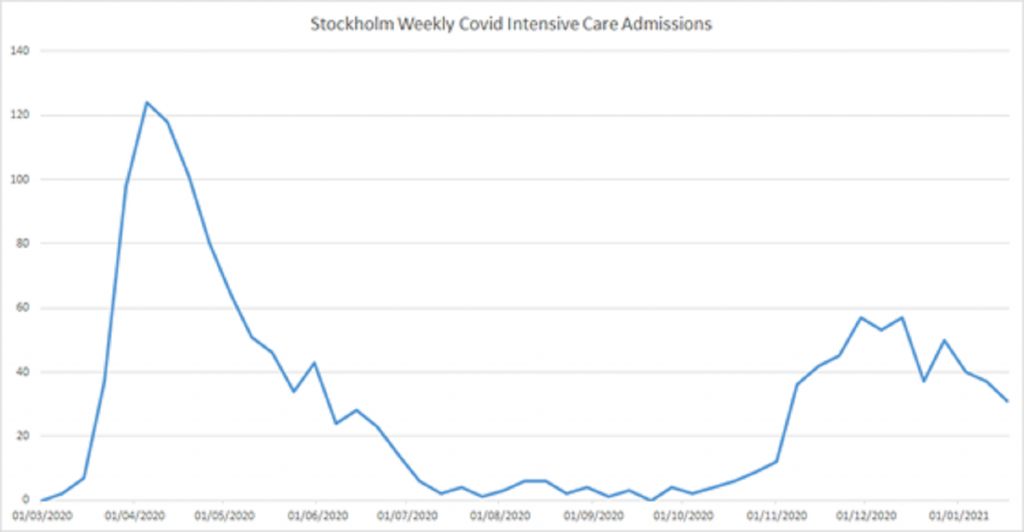
Overall excess deaths in the country have been running quite high since mid-November but are now, like ICU admissions, in decline (see below). A recent, very thorough blog post found that if you add Sweden’s all-cause mortality in 2019 and 2020 together (2019 had below-average mortality), it was about the same as the cumulative total for 2017 and 2018.
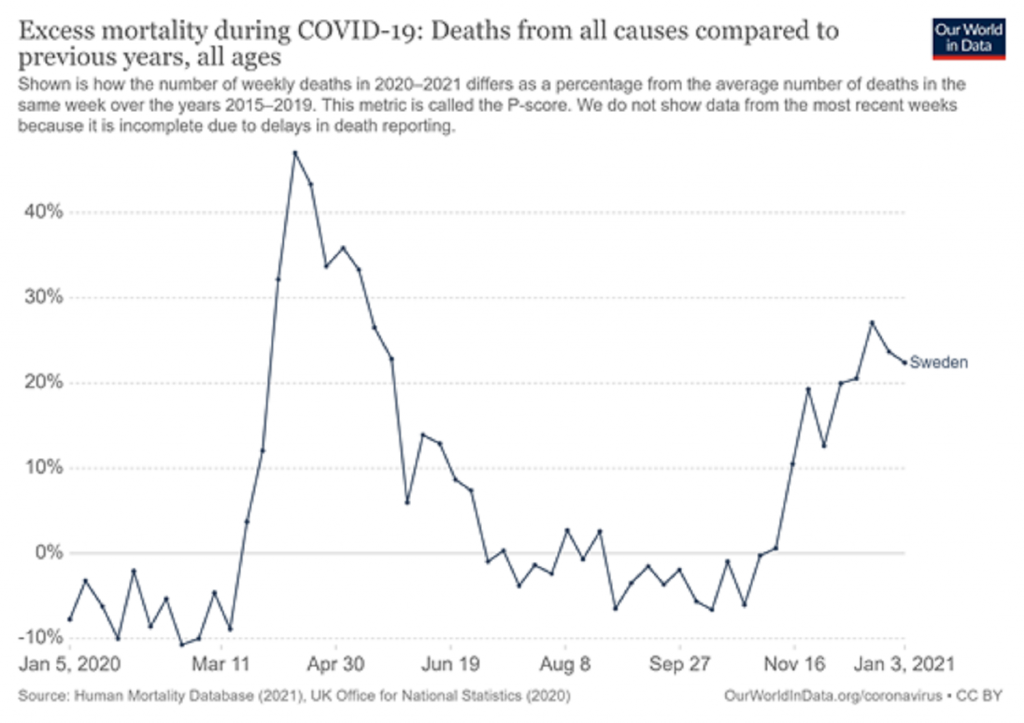
Sweden didn’t do nothing. But it did a lot less than many other countries including the UK, and without seeing the huge death tolls predicted by those who tell us lockdowns are the only way to “control” the virus. There are places which did even less than Sweden, and their examples should also be studied for the lessons they teach us. But Sweden continues to expose the central myth of the lockdowners – that without severe restrictions things would be far worse than they are now, and so all the collateral damage must be worth it.
Stop Press: Philippe Lemoine, a PhD student at Cornell, has produced a great Twitter thread about Sweden and the unavoidable conclusion that lockdowns don’t have much impact on reducing Covid mortality.
Ivermectin: Miracle Cure or Snake Oil?
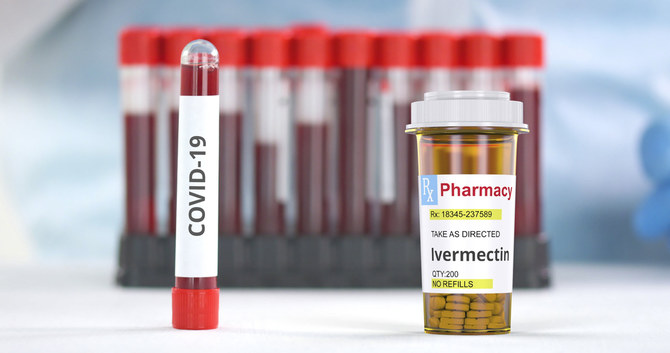
City AM reports that Oxford University is to investigate the potential of the antiparasitic drug ivermectin for treating COVID-19:
A cheap drug credited with dramatically reducing COVID-19 deaths has been moved to trial stage in the UK.
Researchers at Oxford University are carrying out a Principle trial programme aimed at finding a treatment that can counteract the disease at an early stage and could be used at home soon after symptoms appear.
The next batch of medicines it will assess includes ivermectin, which has been hailed as a Covid “wonder drug”, the Times reported.
Ivermectin has traditionally been used on livestock and to treat people with parasitic infestations, but has been credited with reducing Covid deaths in the developing world.
However, scientists have warned that its efficacy is yet to be properly proven.
“It has potential antiviral properties and anti-inflammatory properties and there have been quite a few smaller trials conducted in low and middle-income countries, showing that it speeds recovery, reduces inflammation and reduces hospitalisation,” Chris Butler, Professor of Primary Care at the University of Oxford and a co-chief of the Principle trial, told the newspaper.
“But there’s a gap in the data. There’s not been a really rigorous trial.”
The drug has been shown to block the entry of viral protein into the nuclei of cells, which could prevent the virus from replicated.
Results from initial, small-scale trials have been described as “promising”, though scientists and health officials have warned that further tests are needed.
It seems worth doing a mini round-up of just some of the evidence recently amassed for the beneficial effects of ivermectin:
- “Prophylaxis Covid-19 in Healthcare Agents by Intensive Treatment With Ivermectin and Iota-carrageenan” – A clinical trail in Argentina evaluated the protective effect of intensive treatment of Ivermectin and Iota-carrageenan. It found that the treatment was able to reduce the number of health workers infected with COVID-19 and that it reduced the severity of the disease
- “Controlled randomised clinical trial on using Ivermectin with Doxycycline for treating COVID-19 patients in Baghdad, Iraq (Preprint)” – In this controlled trial, 70 patients were treated with ivermectin and doxycyline for a defined period, and 70 were given standard therapy. The treatment reduced the time to recovery and the mortality
- “Ivermectin as a potential treatment for mild to moderate COVID-19 – A double blind randomised placebo-controlled trial (Preprint)” – This trial administered 12 mg of ivermectin to adults with mild to moderate COVID-19 disease on day 1 and day 2 of hospital admission, and set a primary outcome measure of a negative test on day 6. While there was no difference in the primary outcome, a significantly higher proportion of the patients who were given ivermectin survived
- “Role of ivermectin in the prevention of COVID-19 infection among healthcare workers in India: A matched case-control study (Preprint)” – This study took place in India, and was aimed at exploring the association between ivermectin prophylaxis and the development of COVID-19 infection among healthcare workers. It found that two-dose ivermectin prophylaxis at a dose of 300 μg/kg with a gap of 72 hours was associated with a 73% reduction of COVID-19 infection among healthcare workers for the following month
- “Meta-analysis of randomised trials of ivermectin to treat SARS-CoV-2 infection” – A WHO-sponsored meta-analysis investigating ivermectin in 18 randomised clinical trials (2282 patients) identified through systematic searches of PUBMED, EMBASE, MedRxiv and trial registries. It found that in six randomised trials involving patients with moderate or severe infection, there was a 75% reduction in mortality with favourable clinical recovery and reduced hospitalisation. It pointed out that “Ivermectin should be validated in larger, appropriately controlled randomised trials before the results are sufficient for review by regulatory authorities”
The Swiss Doctor has an explanation of how ivermectin works:
To date, the mode of action of ivermectin against the SARS-CoV-2 has remained somewhat of a mystery. Early studies indicated that ivermectin may inhibit viral protein transportation. But a new US-Canadian study, published in Nature Communications Biology, found that ivermectin is highly effective (>90%) in inhibiting the main enzyme (3CLpro) involved in the replication of the SARS-CoV-2 (and other RNA viruses). This might explain why ivermectin appears to be highly effective even as a prophylaxis against SARS-CoV-2 infection
Scepticism is required in all things, of course, but this treatment does look promising, as Mike Yeadon confirms:
REACT Report: Why Wasn’t it Peer Reviewed?
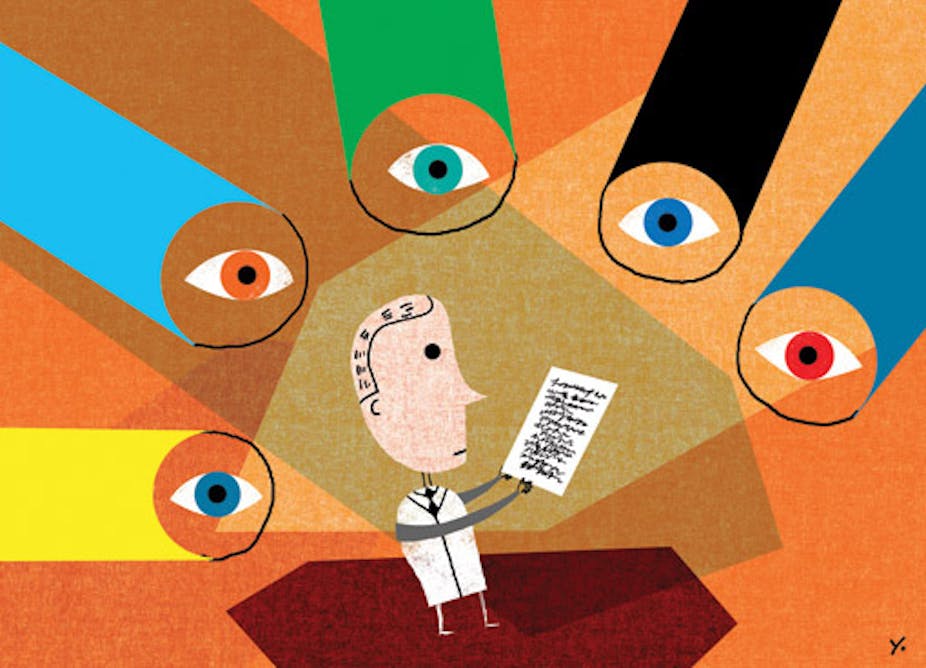
The latest REACT report from Imperial College received a fair amount of media attention for its finding that “Coronavirus infections are not falling” and that they “may have begun to rise”. Today we’re publishing a guest post by Alice Bragg, who points out that the REACT reports are seldom subjected to peer review.
Here we go again! Imperial College publishing reports that tell us we need more lockdowns for longer. The latest REACT report claims the last three weeks of lockdown have made no difference, so our children must suffer more.
The problem is that this report has not been peer-reviewed. As an academic friend once said to me, “If it’s not peer-reviewed, it’s not relevant.”
Which begs the question: why have only two of the 14 REACT reports, stretching back throughout last year, been peer-reviewed?
Here is the December 15th REACT report on the World Health Organisation website with its own clear warning:
“Preprints are preliminary research reports that have not been certified by peer review. They should not be relied on to guide clinical practice or health-related behaviour and should not be reported in news media as established information.”
Worth noting…
We have all been shocked by the footage from inside Intensive Care Units at hospitals in London and the South East. All the doctors, nurses, porters, cleaners and managers working in them are heroes, and we are indebted to them for the rest of our days.
But are lockdowns the way to prevent these scenes?
One would assume that policymakers would only implement a policy as far-reaching and punishing as lockdown if they had a strong degree of certainty that the suspension of our liberties will save lives.
It was in response to a model produced by Imperial College that the Government imposed the first lockdown. However, it is now widely acknowledged that the assumptions underpinning that model were highly dubious.
In addition, the code that powered that model has been found to be of very poor quality when reviewed and analysed by coding experts, computer programmers and epidemiologists. Even Professor Ferguson himself said that it was a model he had created more than 13 years ago to model the likely course of flu pandemics.
Nevertheless, we have watched our freedom of movement be suspended indefinitely, along with our freedom to associate with others of our choosing, the freedom to assemble and gather, and the freedom to protest (the cornerstone of any democracy). Our children are being denied their right to go to school and, in many cases, have been separated from their peers and wider family for almost a year. Businesses have been forcibly closed, many of which will never recover.
At a time when the stakes are so high, why would Imperial College’s REACT reports not be peer-reviewed?
The answer can be found in the peer-review process itself. Over the last 20 years, the number of papers submitted to journals has grown dramatically. This has been compounded by the growth of ‘pay to publish’ sites that make money every time a paper goes up. Experts who are qualified to carry out rigorous peer-reviews would probably prefer not to spend all their time critiquing other peoples’ papers. Demand outstrips the ‘peer’ supply.
That said, when research findings are being used to guide Government policy, there must be a way to cut through the crowd? After all, not many scientific papers are used to justify a population being denied their basic freedoms or children being taken out of school.
According to David Livermore, Professor of Medical Microbiology at the University of East Anglia and Chair of the Public Health England Resistance to Antibiotics Programme:
“REACT is a surveillance programme which then supports various studies and analyses. Such a surveillance programme would normally have an Independent Advisory Committee”
An Independent Advisory Committee of this nature, according to Prof Livermore, would undertake a number of tasks, including making sure that the people who participate in the programme continue to represent the population. They would also, he stresses, play the role of the peer-reviewer, so that when REACT reports hit the media and arrive on ministers’ desks, the information they contain has been rigorously assessed.
This is only possible if ‘independent’ means what it says, and that people who are constructively sceptical – asking awkward questions – are appointed, not just like-minded ‘friends of the project’. As the debate about ‘the science’ becomes increasingly polarised, inviting informed and qualified critics such as Dr Clare Craig, Dr Jonathan Engler, Dr Michael Yeadon, Dr John Lee and Joel Smalley onto an independent REACT advisory board would inspire great confidence.
Stop Press: Over at the Spectator, Philip Thomas has more on why the REACT study is problematic
What Value Should We Put on a Human Life?

Today we’re publishing a new piece by Dr David Cook, a senior scientist with over 20 years’ experience in drug research and development. Following the row over Lord Sumption’s contribution to the Big Questions last weekend, Dr Cook explains the concept of Quality Adjusted Life Years (QALY), and then applies it to lockdowns.
In 2017 the National Institute for Health and Care Excellence (NICE) rejected the drug nivolumab for use in the NHS to treat patients with advanced head and neck cancers. The reason given was that, despite the drug showing positive benefits, it was judged to be too expensive based on the cost per ‘quality adjusted life year’ (QALY). For patients with this disease (and clinicians treating them) this was a hugely disappointing decision and although subsequently nivolumab has been approved for use, at the point of this judgement it must have felt to these patients that their lives were somehow being deemed to be less valuable than those of other patients.
Let’s wind forward to today and Lord Sumption discussing the impact of lockdown on society and apparently suggesting something similar, namely, that some lives are less valuable than others.
But in both of these cases is this what was actually meant? Are we really assigning a value to a life? Are we really judging that some lives are more valuable than others and so more worthy of saving?
To answer these questions, let’s focus on QALYs because these seem to be highly culpable in the crime of ‘life valuation’.
Quality Adjusted Life Years (QALYs) are not used to assess the quality of a life and they are certainly not used to make a judgement on its value.
The reason for this is because QALYs are used to assess the impact and value of an intervention. The judgement as to the quality of someone’s life is something that only the individual can make, but regardless of how they feel about it as a whole, they would certainly be able to tell if it had improved or got worse after some kind of treatment. If I whack you on the hand with a ruler has this improved your quality of life? What if I now kiss it better?
This is the fundamental point – QALYs are always used comparatively: did this treatment or intervention improve or reduce the quality of life?
In assessing the value of new therapies, QALYs are used to try and produce an objective view of their (hopefully positive) impact. A good example of the challenges of this kind of assessment and why QALYs are so helpful is if we think about how we would assess the value of a new analgesic or pain treatment. Such a treatment may have no effect on life expectancy and so its whole impact is on quality of life. But how do you assess this impact when pain is such a personal experience? The only way is to actually ask the individual patient. As a result, a major part of the assessment of the benefit of such medicines is done through use of questionnaires and asking how the individual feels; did the treatment improve your quality of life? Then, by aggregating all of these individual responses together, we can start to assess whether overall the treatment was beneficial or not. You can see that at no point are we making a judgement of the quality or value of the patient’s life. The assessment we are making is of the value of the treatment.
Worth reading in full.
Stop Press: John Humphrys covers similar ground in his Saturday Daily Mail column. Noting that, according to the National Institute for Health and Care Excellence (NICE), the value of a QALY is about £30,000, he writes:
No one can possibly know yet how much the lockdowns have cost the country. The bills rocket with every day that passes. What we do know is that if we applied the QALY test to the lives ‘saved’, we would no longer be talking about £30,000 a year. It would be many times that amount.
The price of even the most expensive new drug is a drop in the ocean compared to the vast cost of closing down half the nation’s economy – and the bill is rising with every word I type.
So does that mean the life of someone who faces the risk of dying from Covid must be valued more than those who have other life-threatening conditions?
Many people have died because they’ve been unable to get the treatment they needed. Hard-headed calculations were presented to policy-makers who knew what the consequences of lockdowns would be but they took them anyway.
Look Him in The Eyes… A Reader Responds

A reader has written to us to express his disappointment about the NHS’s latest advertising campaign.
I am writing about the shocking new HMG/NHS coronavirus public health campaign. These are the adverts with “Look them in the eyes…” which show a poorly person wearing an oxygen mask.
In public health the aim of an information campaign should be to give accurate, truthful and honest information so that the public can understand the issues and take any necessary steps or measures for their own health.
Does the Governments and NHS “Look them in they eyes…” poster campaign fit any of the above? A resounding NO! Their campaign is one of blame and division. They have chosen to set one group against another. There is the victim group, this is the sick virus sufferer. They are portrayed as the innocent victim whom someone else has done a terrible thing to.
If there is a victim then this other person must be a perpetrator, a bad person or person who has committed a crime. We would generally consider a perpetrator to have carried out their actions against the victim on purpose and in a planned way. It follows that whoever becomes sick with Covid, or any virus for that matter, has had a bad thing done to them and a bad person is to blame.
The Government and NHS in this poster campaign is blaming one set of people for doing a bad thing to another set of people and no good can come from this. No one is given accurate, measured or honest information upon which they can take actions. Instead, in setting up a victim and a perpetrator, our Government and NHS are setting one lot of people against another. It is extraordinary that a Government and Public Health Service should commission a campaign that blames and divides its population. The campaign fails on all accounts – it provides nothing, people will be angered by it and take no notice of it because it is not truthful, while other people will seek out the bad people to punish them.
A poster campaign like this fails all groups. There are real families who have passed covid on to each other. One person I know of who works for the NHS likely picked up the infection during their hospital shifts. From this person, the elder parents picked up an infection and sadly one died. Does our Government and NHS understand what it is suggesting to this worker and their family? The suggestion is the NHS worker has killed their own parent.
It is widely acknowledged that many patients acquire their coronavirus infections during their hospital stay. Some of these people have died. Has the Government and the NHS looked itself in the eyes?
This is a terrible public information campaign. I believe it has come from a Government which has taken on the belief it can control a respiratory virus and is desperate to deflect blame as it becomes obvious it cannot.
When a Government blames its population and attempts to turn one group against another what will become of us? Is the Government aiming for civil war?
A Smidgen of Optimism on Masks
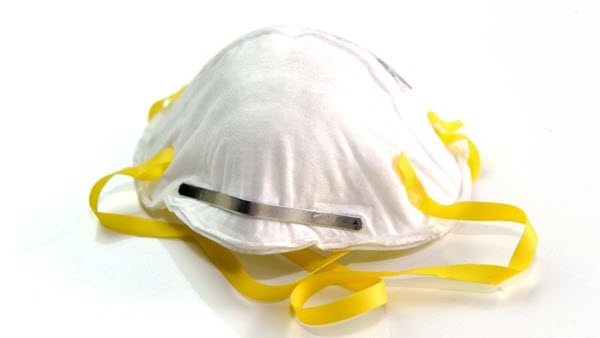
Lockdown Sceptics reader Steve Sieff finds cause for optimism in the change in emphasis to medical and surgical masks in the various mandates, rules and guidance. Steve runs the Green band: Red band website which makes the case for a coloured wrist band system that could promote individual choice when it comes to social distancing and managing Covid risk.
I have an optimistic view to offer on the advance of N95 masks.
I know that the position of most lockdown sceptics is that masks should go. I also know that many of the LS arguments are based on the lack of evidence that they are effective to reduce transmission – even in some cases that they increase the risk of harm. I do not know, but I suspect, that for many LS readers, the question of transmission is largely irrelevant because they consider that the negatives of a masked society outweigh the gains that might be made if some reduction to transmission were shown. The logic behind this goes back to the fundamental belief that COVID-19 should not be ascribed the special status that it has been given on the basis that it affects a small percentage of people. Beyond that, the groups most likely to suffer can be easily identified and therefore can easily protect themselves or be protected.
I believe that underpinning the views above is a strong desire amongst the vast majority of LS readers to see a restoral of the individual’s right to make choices for themselves. We would all like to see a more balanced presentation of risks and of facts from our Government (and others). In the event that the balanced presentation of available data convinced some people to take extraordinary protective measures, we might disagree with the reaction, but most of us would acknowledge and respect others’ right to be cautious provided their decisions did not overly impact on the decisions we make when not in contact with them. This is the basis of Green Band: Red Band of course.
In the context of individual freedom, I wonder if a shift towards more protective masks might be a positive thing. I know that this might sound like anathema to most LS readers so I will explain. The mask narrative to date has been that “my mask protects you, your mask protects me”. This logic moves us away from personal responsibility towards collective responsibility. Those who do not wear a mask are letting down others and are stigmatised. More protective masks such as N95s and N99s could change this narrative. These masks are designed to protect users. If they were widely available then the message could shift to wearing a mask to protect yourself. There would still be some protection for others, but the emphasis would be on protecting oneself. That is extremely important because it could pave the way for masks to become a choice. Those at lower risk (whether through age or vaccination) could decide that they do not require the protection that a mask provides while those who were more concerned could opt to protect themselves.
Of course, this shift in approach will not come easily. There will be many who argue that mandatory self-protection has an important place (see seat-belts, motorcycle helmets, etc.) because the dramatic reduction in risk is worth enforcing for the relatively minor loss of liberty. And there will be those who will continue to believe that the individual has a duty to protect the NHS by making every effort not to get sick/injured, etc. While hospital numbers remain high, those arguments will no doubt be persuasive for the majority. However, as hospital numbers fall, the general assessment of risk will change. It is harder to maintain a climate of fear without supportive death rates and as increasing numbers of people are vaccinated. At that stage the availability of protective masks could give the Government the opportunity to end mask mandates in favour of advising people to wear N95/N99s if they are concerned.
Stop Press: The Connexion reports that the WHO is maintaining its recommendation for fabric masks.
A Close Encounter With the Police
A Lockdown Sceptics reader has written to us describing a nightmarish afternoon dog walk.
I just need to offload.
I went two miles to a huge area of open space. Arrived at 3pm. Walked the dog and got back to the car at 4.30pm, darkness now creeping in and a howling gale. My 21 year-old was with me (student final year law degree… yep so much stress and upset). We were about to drive off when a police car drove up and a rather hot (okay unnecessary detail) bobby stopped us.
Now at this point I looked around at the car park. Four cars and maybe a few bedraggled dog walkers. Hmm… No way he’s here for Covid surveillance, I thought. Maybe it’s a drug selling hotspot? To cut a long story short, yes he was there to nab (engage and educate) Covid rule-breaking criminals. After a 15-minute chat I drove off uncomfortably, having given him no details about how far we had come or why. The local police had actually sent a patrol car out in the rain to a hill at dusk to ask people why they were there!
Admittedly, my husband is critically vulnerable according to the NHS. Was I taking unnecessary risks and endangering his life? We walk locally and rarely go in shops. I’m antisocial. I don’t need shops but I do need open spaces!
I relayed this story to a close friend. Her reply was aggressive, judgemental and swift. I shouldn’t have driven and my actions put others at risk. She claimed I could have had an accident and caused yet more issues for the ambulance service. I was very much in the wrong. She is a partner at a large law firm. She’s now so far lost in the crazy mists of fear that her reasoning is, in my opinion, misguided and extreme. A lawyer! We’ve had many such conversations and I’ve patiently listened and respected her views. This was a line too far over-stepped.
I’m terrified for the evolution I see in society. It’s gnawing holes of fear and anger into my very being . I’m watching the shifting mood, peoples lives used like props in a high-budget Derren Brown special.
And so, don’t stop fighting. I’m a harassed and war torn ‘at home mum of three’ with no influence. I need you… and all the other questioning sceptics. I want educated reasoning rather than fear-focused propaganda.
Next Week’s Davos Guest List

Like so much else these days, next week’s DAVOS summit will take place on Zoom. Deutsche Welle has the story:
It’s that time of the year again when a sleepy Alpine town in Switzerland usually comes alive as the global elite descends on its snow-clad slopes to debate global challenges. This year, however, Davos has been left undisturbed with its eponymous annual jamboree moving online amid a still raging COVID-19 pandemic…
The more than 50-year-old annual event attended by global political and business leaders, celebrities and prominent social activists is taking place amid the worst economic crisis in living memory that has rendered millions jobless and deepened global inequalities.
An annual risks survey published by the World Economic Forum (WEF) on Tuesday warned that economic and social fallout from the COVID-19 pandemic could lead to “social unrest, political fragmentation and geopolitical tensions”.
We need an economic recovery that is “more resilient, more inclusive and more sustainable”, WEF founder Klaus Schwab told reporters…
The pandemic and the uneven responses to the crisis unleashed by it have stoked geopolitical tensions. Governments have chosen to put national interests ahead of others, unilaterally shutting down borders and hoarding food and medical supplies.
We need to restore trust in our world, Schwab said. “We have to substantially reinforce global cooperation again and engage all stakeholders into the solution of the problems we face, and here we have to engage particularly business.”
Nowhere has this me-first approach been more apparent than on the vaccine front where rich nations have secured billions of doses – many times the size of their populations – while poor nations struggle for supplies. The head of the World Health Organization, Tedros Adhanom Ghebreyesus, who is also one of the speakers, cautioned that the world was on the brink of “catastrophic moral failure”.
The global scramble for vaccines, or vaccine nationalism, risks prolonging the pandemic and delaying the easing of global travel restrictions.
“COVID-19 anywhere is COVID-19 everywhere,” WEF President Borge Brende told reporters. “We all are in the same boat and we would have to collaborate to really make progress.”
It is interesting to note that the WEF has a date in mind for when it may be able to meet in person:
A virtual summit doesn’t mean that Davos regulars, many of them without official badges, would be robbed of their opportunity to hobnob and strike deals at glamorous receptions that take place on the side lines of the main event.
The WEF has said it would hold its marquee event in person in Singapore from May 13th-16th later this year.
Worth reading in full.
Sceptics Under Fire

It won’t have escaped readers’ attention that lockdown sceptics are coming under increasing fire from defenders of lockdown orthodoxy. Now, it seems, the most fanatical of these defenders – a group that includes Neil O’Brien MP – have created a website called “Antivirus: The COVID-19 FAQ“. As you’ll see if you click on the link, it attempts to rebut most of the sceptics’ arguments and singles out a group of sceptics for criticism, most of them contributors to this website.
We thought about producing a lengthy response, making all the obvious points: the fact that some sceptics’ predictions have turned out to be inaccurate doesn’t mean their main argument – that the costs of lockdowns outweigh the benefits – should be dismissed; the proponents of lockdowns have made equally inaccurate predictions (remember the “Graph of Doom”?); some of the stories we’ve flagged up that were initially dismissed as “conspiracy theories” have turned out to be quite plausible (e.g. that SARS-CoV-2 escaped from the Wuhan Institute of Virology); there’s a world of difference between being a ‘lockdown sceptic’ and a ‘Covid denier’; the WHO has confirmed that our reservations about the accuracy of the PCR test are well-founded; etc., etc.
However, we thought it might be more fun to invite readers to defend lockdown scepticism from the arguments set out on Neil O’Brien’s ‘myth-busting’ website instead. So please take a look at the website and let us know what you think. Put the word “Antivirus” in the subject line and we’ll publish some of the best responses over the next few days.
Stop Press: We’ve received a terrific response to Christopher Snowdon’s Jan 16th piece in Quillette that we’ll publish tomorrow.
Round-up
- “Covid: More deadly’ UK variant claim played down by scientists” – The BBC notes that there is only “some evidence” that the Kent variant may be associated with “a higher degree of mortality”
- “Who is Britain kidding? We can’t control the virus with a travel ban and we shouldn’t try” – Juliet Samuel in the Telegraph says that an expensive and damaging travel ban makes no sense
- “Don’t blame the public for packed hospitals, urge top doctors after string of medics tell rule-breakers they have ‘blood on their hands‘” – MailOnline report that two doctors have warned their fellow medics against blaming rule-breakers for packed wards
- “Why is the Labour Party so enthusiastic about COVID-19 lockdowns when they are so destructive to our poorest communities?” – Writing for RT, Dr Lisa McKenzie asks an excellent question of the Labour party – and the British Left more generally
- “Fast-spreading Covid variant can elude immune responses” – Nature reports on the evidence that a variant identified in South Africa might compromise immunity, sparking concerns about vaccine effectiveness
- “Those with the least have suffered the most during the COVID-19 pandemic” – “People on the lowest incomes have faced the worst of the pandemic’s economic bite” say Ian Hamilton and Aleks Collingwood in the BMJ
- “So is this really an epidemic of despair?” – Peter Hitchens points out in his Mail on Sunday column that there is no counting the damage done by the loss of social contact
- “Do people want to be free? Or do they prefer security at any price?” – In her Sunday Telegraph column, Janet Daley says weighs up today’s answer to an old question
- “Word of the Week: Sceptic” – Spectator Life‘s resident satirist Andy Shaw provides a new definition of the term ‘sceptic’
- “Reject Bad Science with Nick Hudson, PANDA – Pandemics Data and Analytics” – The Pandemic Podcast interviews Nick Hudson, the founder of Panda, an organisation with a mission to challenge the scientific basis of lockdowns
- “Lockdown Forever; The State of ‘Lockdown Scepticism’” – The latest edition of the Irreverend podcast sees Tom and Jamie considers the growing hostility toward lockdown sceptics
- “Tanzania took 27 million Euros from the European Union, embezzled it and then declared the country as Coronavirus free” – Africa Explained reports that officials in Tanzania are struggling to explain what happened to the 27 million Euros they collected from the EU solidarity fund for the fight against COVID-19. President Magufuli declared the pandemic in Tanzania officially over in May 2020
- “Travel bans should be based on evidence, not politics or fear” – Jakub Hlávka and Lisa Bari set out the case against border closures in Statnews
- “Wuhan one year on: The city that appears safe from Covid – but at what cost?” – The Telegraph’s China Correspondent reports from Wuhan, where, one year on, residents are grappling with the new normal
- Following the alarmist press conference on Friday, The Great Barrington Declaration Twitter account has a produced a great thread on Government messaging
Theme Tunes Suggested by Readers
Seven today: “Hard Times Of Old England” by Steeleye Span, “Who’s Zoomin’ Who” by Aretha Franklin, “Running Out Of Fools” by Aretha Franklin, “Never Get Out Of These Blues Alive” by John Lee Hooker and Van Morrison, “Don’t Keep Me Wonderin’” by The Allman Brothers Band, “Won’t Get Fooled Again” by The Who and “Hard Times (Nobody Knows Better Than I” by Ray Charles
Love in the Time of Covid

We have created some Lockdown Sceptics Forums, including a dating forum called “Love in a Covid Climate” that has attracted a bit of attention. We have a team of moderators in place to remove spam and deal with the trolls, but sometimes it takes a little while so please bear with us. You have to register to use the Forums as well as post comments below the line, but that should just be a one-time thing. Any problems, email the Lockdown Sceptics webmaster Ian Rons here.
Stop Press: In another disturbing development for our times, it would appear that the best hope of a right swipe on a dating app is getting vaccinated. TMZ reports that Tinder, Bumble and OkCupid have all seen a major uptick in profiles mentioning the words “vaccine” or “vaccinated’ in their bios, and indicating vaccination readiness as a screener for matches. The jury is still out on whether the vaccine reduces transmission.
Sharing Stories
Some of you have asked how to link to particular stories on Lockdown Sceptics so you can share it. To do that, click on the headline of a particular story and a link symbol will appear on the right-hand side of the headline. Click on the link and the URL of your page will switch to the URL of that particular story. You can then copy that URL and either email it to your friends or post it on social media. Please do share the stories.
Social Media Accounts
You can follow Lockdown Sceptics on our social media accounts which are updated throughout the day. To follow us on Facebook, click here; to follow us on Twitter, click here; to follow us on Instagram, click here; to follow us on Parler, click here; and to follow us on MeWe, click here.
Woke Gobbledegook
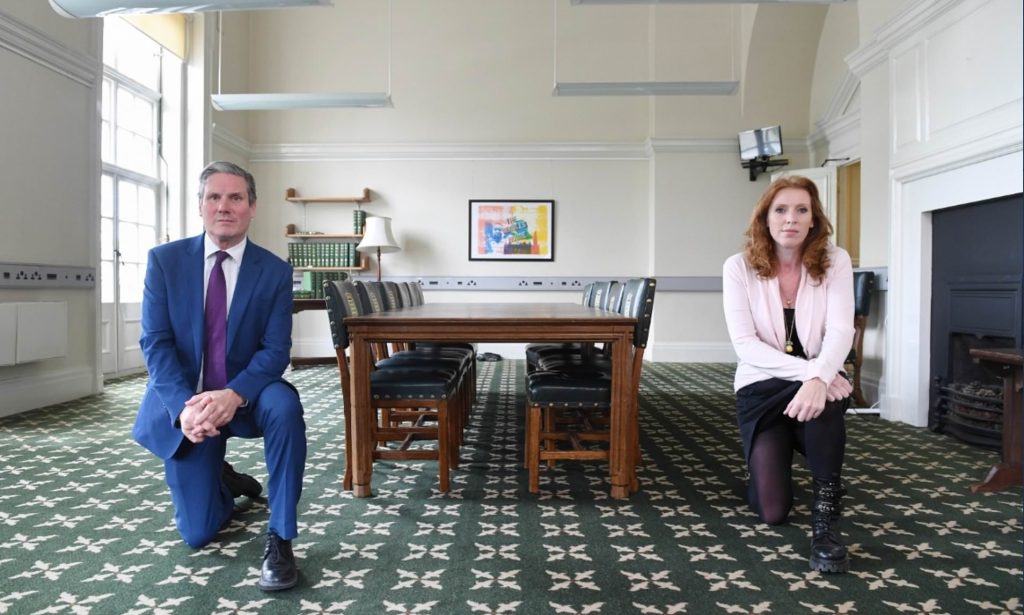
We’ve decided to create a permanent slot down here for woke gobbledegook. Today, we bring you the author Jen Hatmaker, who has publicly apologised for the offensive opening line of the prayer she delivered at the inaugural interfaith prayer service held for President Joe Biden. The Christian Post has the story:
Christian author Jen Hatmaker, who on Thursday joined a progressive group of interfaith leaders for the National Prayer Service in honour of President Joe Biden’s inauguration, has apologized for the first line of a prayer she delivered at the event.
“Almighty God, You have given us this good land as our heritage,” Hatmaker began in the prayer that she said was written by organisers of the event in her apology posted on Facebook shortly after the event.
“I was proud to offer the final liturgical prayer which was written by the organizers to serve as an anchor. I have one regret and thus apology. The very first sentence thanked God for giving us this land as our heritage. He didn’t. He didn’t give us this land,” she said.
“We took this land by force and trauma. It wasn’t an innocent divine transaction in which God bestowed an empty continent to colonizers. This is a shiny version of our actual history. If God gave this land to anyone, it was to the Native community who always lived here,” Hatmaker continued.
She explained that as soon as she read the line from the prayer she began to regret it.
“I panicked and froze and then just kept going. I am so sorry, community. Primarily sorry to my Native friends. It matters to me that we reckon with our history of white supremacy and the lies we surrounded it with, and I am filled with regret that I offered yet another hazy, exceptional rendition of the origin story of colonization. Ugh,” she lamented. “I can’t go on without apologizing. My stomach hurt all day.”
Hatmaker, who is also a mother of five, said if she could change anything about the prayer she would have included a call for America to repent of things like the unjust systems the nation has built.
Hatmaker, who is also a mother of five, said if she could change anything about the prayer she would have included a call for America to repent of things like the unjust systems the nation has built.
“God, may we continue to be a people who reckon with our violent history, repent from the unjust systems we built, denounce white supremacy in all its forms past and present, and continue to work together to form a more perfect union,” she said
Stop Press: In a comment piece for the Times, Janice Turner says that the US is heading towards eradicating “the language of biological sex in order to appease an influential trans lobby”.
Stop Press 2: The Post Millennial has an exclusive interview with they/them, the editor of the Spectator USA’s new Wokeyleaks column who is seeking to expose the “CEOs and board members of the social justice movement”.
“Mask Exempt” Lanyards
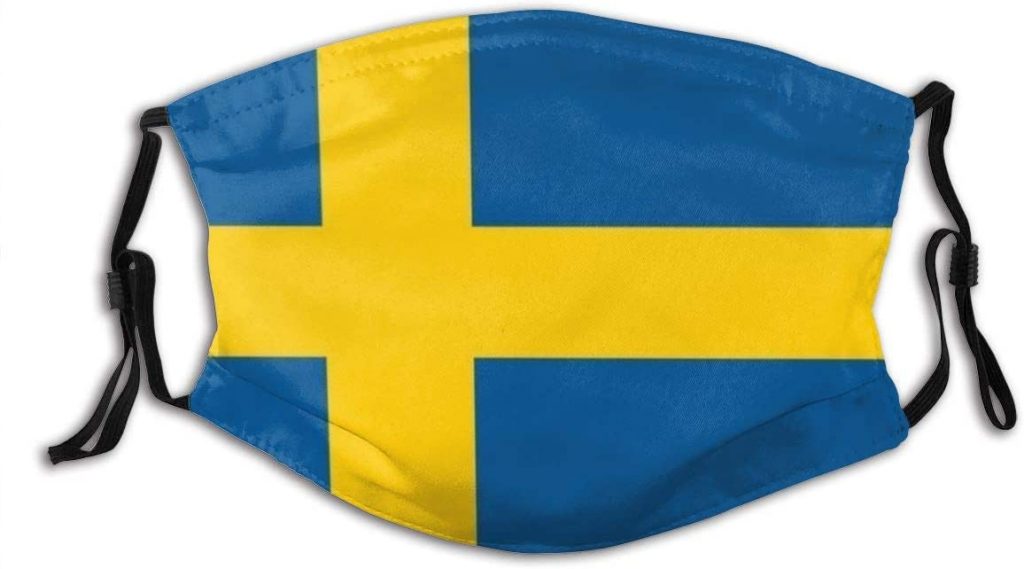
We’ve created a one-stop shop down here for people who want to obtain a “Mask Exempt” lanyard/card – because wearing a mask causes them “severe distress”, for instance. You can print out and laminate a fairly standard one for free here and the Government has instructions on how to download an official “Mask Exempt” notice to put on your phone here. And if you feel obliged to wear a mask but want to signal your disapproval of having to do so, you can get a “sexy world” mask with the Swedish flag on it here.
Don’t forget to sign the petition on the UK Government’s petitions website calling for an end to mandatory face masks in shops here.
A reader has started a website that contains some useful guidance about how you can claim legal exemption. Another reader has created an Android app which displays “I am exempt from wearing a face mask” on your phone. Only 99p.
If you’re a shop owner and you want to let your customers know you will not be insisting on face masks or asking them what their reasons for exemption are, you can download a friendly sign to stick in your window here.
And here’s an excellent piece about the ineffectiveness of masks by a Roger W. Koops, who has a doctorate in organic chemistry. See also the Swiss Doctor’s thorough review of the scientific evidence here and Prof Carl Heneghan and Dr Tom Jefferson’s Spectator article about the Danish mask study here.
Stop Press: We have been reminded that today, 24th January, is the deadline by which the Secretary of State for Health was bound to review the requirements of the mask rules. The Health Protection (Coronavirus, Wearing of Face Coverings in a Relevant Place) (England) Regulations 2020 were passed on 24th July 2020. Regulation 9 stipulates that: “The Secretary of State must review the need for the requirements imposed by these Regulations before the end of the period of six months beginning with the day on which they come into force.’” It is unclear what the review will have entailed, but if any reader can enlighten us, please do so. According to Regulation 10, the mask regulations expire “at the end of the period of 12 months beginning with the day on which they come into force.” Six months to go.
Stop Press 2: The Telegraph has an entertaining postcard from South Dakota, where the Republicans are shunning masks to the consternation of the Democrats.
The Great Barrington Declaration
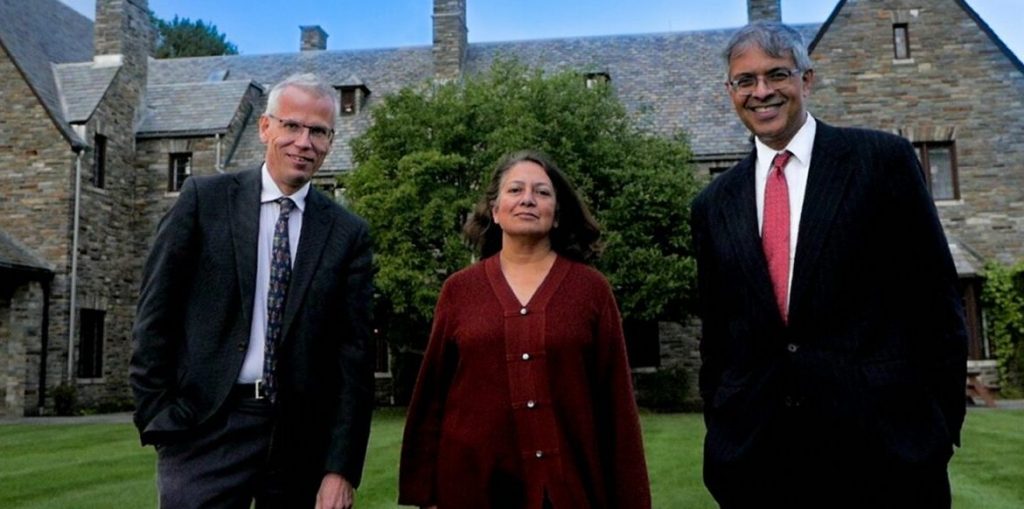
The Great Barrington Declaration, a petition started by Professor Martin Kulldorff, Professor Sunetra Gupta and Professor Jay Bhattacharya calling for a strategy of “Focused Protection” (protect the elderly and the vulnerable and let everyone else get on with life), was launched in October and the lockdown zealots have been doing their best to discredit it ever since. If you googled it a week after launch, the top hits were three smear pieces from the Guardian, including: “Herd immunity letter signed by fake experts including ‘Dr Johnny Bananas’.” (Freddie Sayers at UnHerd warned us about this the day before it appeared.) On the bright side, Google UK has stopped shadow banning it, so the actual Declaration now tops the search results – and Toby’s Spectator piece about the attempt to suppress it is among the top hits – although discussion of it has been censored by Reddit. The reason the zealots hate it, of course, is that it gives the lie to their claim that “the science” only supports their strategy. These three scientists are every bit as eminent – more eminent – than the pro-lockdown fanatics so expect no let up in the attacks. (Wikipedia has also done a smear job.)
You can find it here. Please sign it. Now over three quarters of a million signatures.
Update: The authors of the GBD have expanded the FAQs to deal with some of the arguments and smears that have been made against their proposal. Worth reading in full.
Update 2: Many of the signatories of the Great Barrington Declaration are involved with new UK anti-lockdown campaign Recovery. Find out more and join here.
Update 3: You can watch Sunetra Gupta set out the case for “Focused Protection” here and Jay Bhattacharya make it here.
Update 4: The three GBD authors plus Prof Carl Heneghan of CEBM have launched a new website collateralglobal.org, “a global repository for research into the collateral effects of the COVID-19 lockdown measures”. Follow Collateral Global on Twitter here. Sign up to the newsletter here.
Judicial Reviews Against the Government

There are now so many legal cases being brought against the Government and its ministers we thought we’d include them all in one place down here.
The Simon Dolan case has now reached the end of the road. The current lead case is the Robin Tilbrook case which challenges whether the Lockdown Regulations are constitutional. You can read about that and contribute here.
Then there’s John’s Campaign which is focused specifically on care homes. Find out more about that here.
There’s the GoodLawProject and Runnymede Trust’s Judicial Review of the Government’s award of lucrative PPE contracts to various private companies. You can find out more about that here and contribute to the crowdfunder here.
And last but not least there was the Free Speech Union‘s challenge to Ofcom over its ‘coronavirus guidance’. A High Court judge refused permission for the FSU’s judicial review on December 9th and the FSU has decided not to appeal the decision because Ofcom has conceded most of the points it was making. Check here for details.
Samaritans

If you are struggling to cope, please call Samaritans for free on 116 123 (UK and ROI), email jo@samaritans.org or visit the Samaritans website to find details of your nearest branch. Samaritans is available round the clock, every single day of the year, providing a safe place for anyone struggling to cope, whoever they are, however they feel, whatever life has done to them.
Shameless Begging Bit
Thanks as always to those of you who made a donation in the past 24 hours to pay for the upkeep of this site. Doing these daily updates is hard work (although we have help from lots of people, mainly in the form of readers sending us stories and links). If you feel like donating, please click here. And if you want to flag up any stories or links we should include in future updates, email us here. (Don’t assume we’ll pick them up in the comments.)
And Finally…
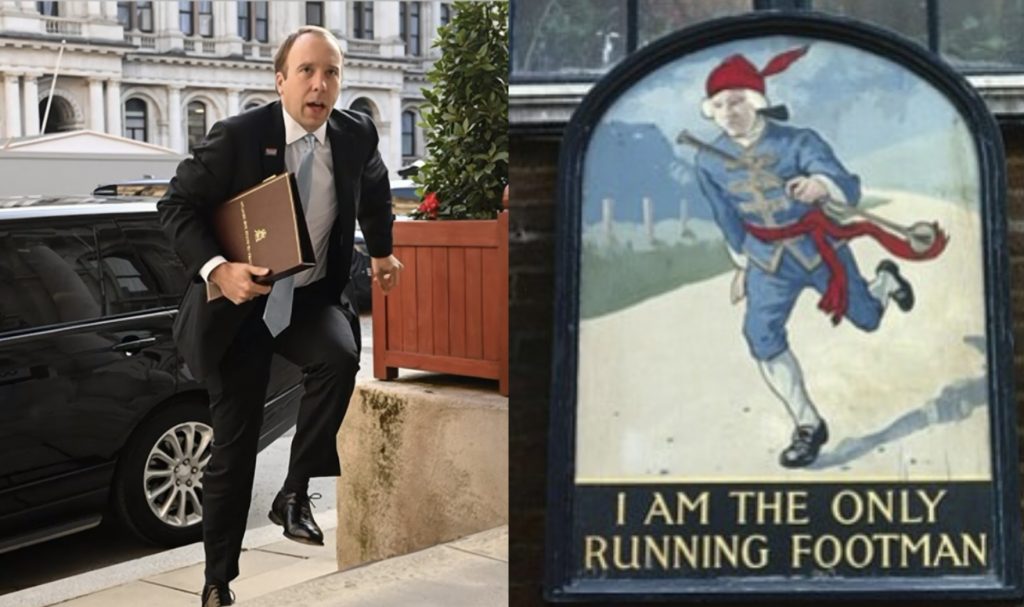













To join in with the discussion please make a donation to The Daily Sceptic.
Profanity and abuse will be removed and may lead to a permanent ban.